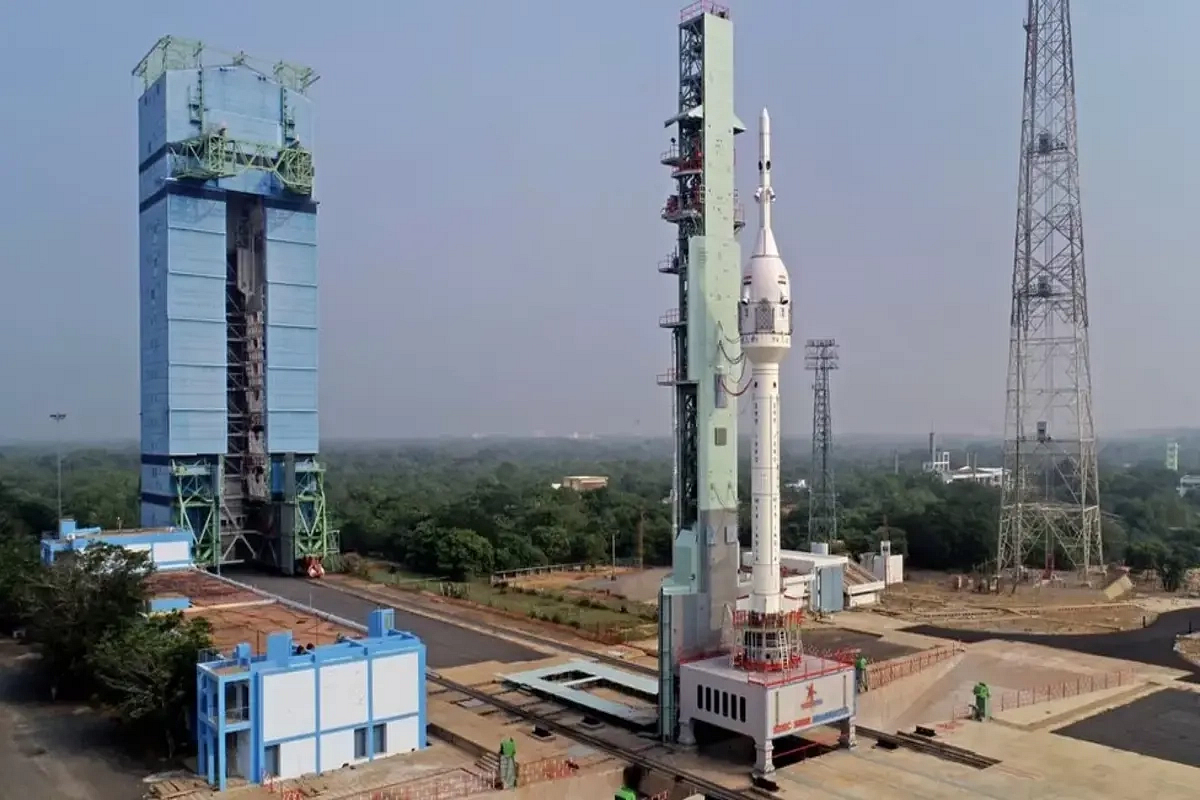Science
Gaganyaan Mission: Maiden Test Flight Successful After ISRO Identifies, Fixes Minor 'Anomaly'

The Gaganyaan test flight ready for take-off at the launch pad in Sriharikota
Earlier today (21 October), the Indian Space Research Organisation (ISRO) achieved success in launching the Flight Test Vehicle Abort Mission (TV-D1) to conduct a critical test of the crew escape system intended for India's pioneering human spaceflight endeavour, Gaganyaan.
The test flight saw a successful liftoff, followed by the successful separation of the crew escape system from the rocket. The module safely landed 723 seconds after liftoff, making a triumphant splashdown.
ISRO managed to complete this flight test on its second attempt after the initial one had to be aborted merely a second before launch at the Satish Dhawan Space Centre in Sriharikota, owing to a glitch in the rocket's ignition, which was later identified and rectified, as per ISRO's announcement.
As the countdown for the launch approached its final second, an unusual plume of smoke was detected at the base of the newly developed TV-D1 rocket, prompting mission control to swiftly halt the launch.
ISRO Chairman S. Somanath explained, "Engine ignition did not take place. The automated launch sequence started as planned but did not complete. The launch will be scheduled after correcting the anomalies."
The primary objective of this test was to evaluate the functionality of the Crew Escape System installed on the crew module for the Gaganyaan mission. In essence, this mission aimed to assess the safety mechanism designed to facilitate the safe evacuation of the Gaganyaan crew in the event of a mission abort caused by a malfunction.
This test vehicle mission serves as a prelude to the Gaganyaan program, which aims to launch humans into space into a Low Earth Orbit at an altitude of 400 kilometers, enabling them to remain there for three days and ensuring their safe return to Earth.
Support Swarajya's 50 Ground Reports Project & Sponsor A Story
Every general election Swarajya does a 50 ground reports project.
Aimed only at serious readers and those who appreciate the nuances of political undercurrents, the project provides a sense of India's electoral landscape. As you know, these reports are produced after considerable investment of travel, time and effort on the ground.
This time too we've kicked off the project in style and have covered over 30 constituencies already. If you're someone who appreciates such work and have enjoyed our coverage please consider sponsoring a ground report for just Rs 2999 to Rs 19,999 - it goes a long way in helping us produce more quality reportage.
You can also back this project by becoming a subscriber for as little as Rs 999 - so do click on this links and choose a plan that suits you and back us.
Click below to contribute.
Latest